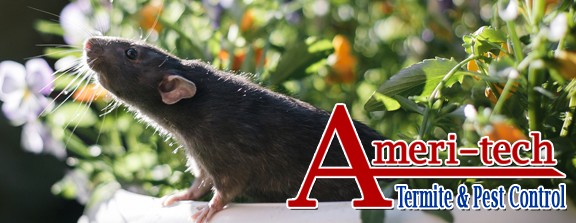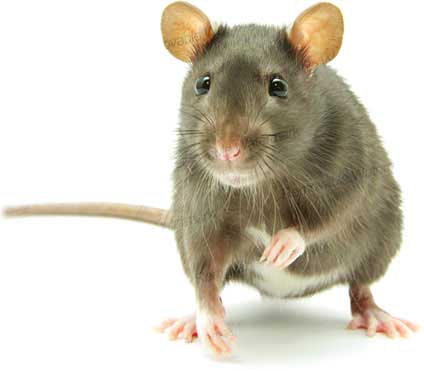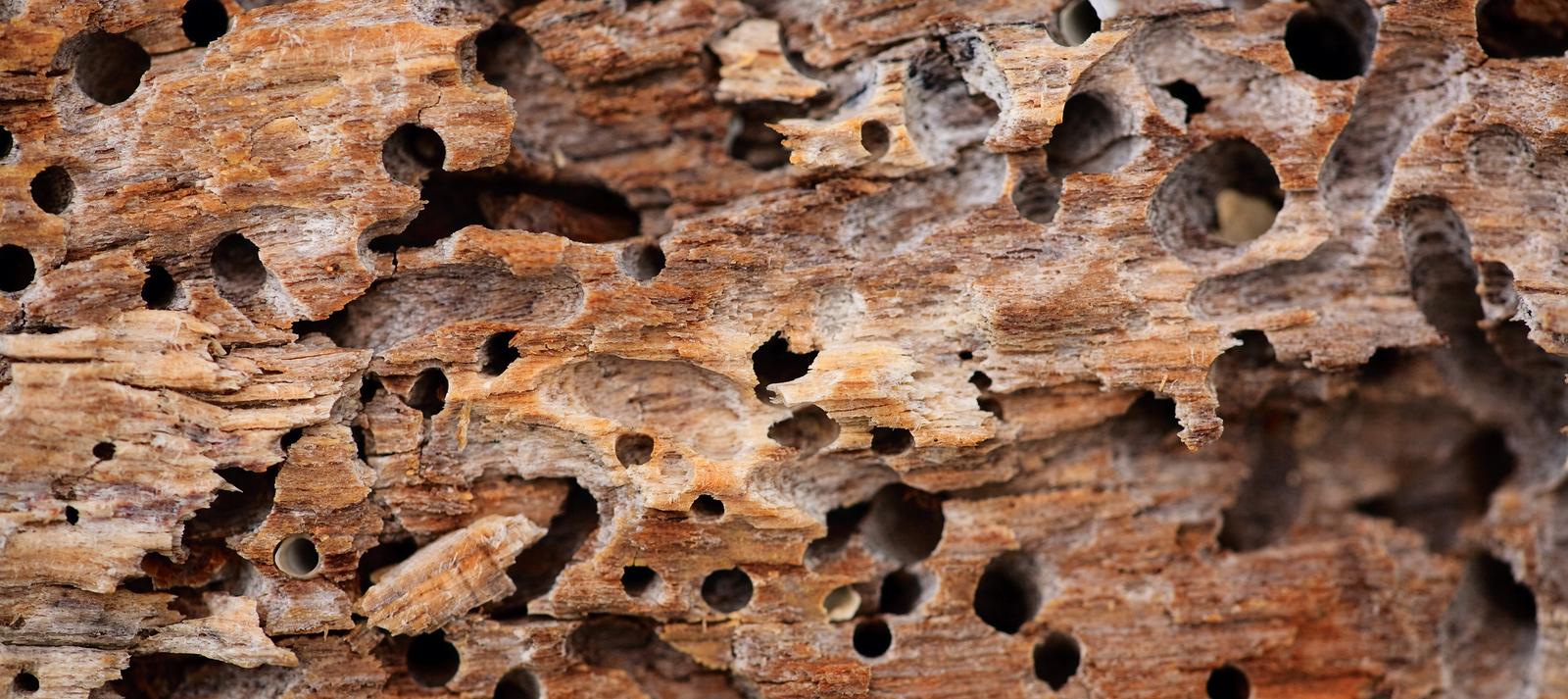Frisco, TX Pest Control
Pest Control in Frisco, TX - At Ameritech Termite & Pest Control we pride ourselves in offering excellent customer service. We have been proudly servicing businesses and homes in the Dallas Fort Worth Metroplex for over 30 years. If you need any kind of pest control service in Frisco, contact Ameri-Tech Termite & Pest Control Company. We are a locally owned business that focuses on the total removal of all of your bugs, ants, spiders etc. We care about our customers and you can trust us to do the job right the first time.
Facts About Frisco, TX - Frisco was originally named Emerson, after Francis Emerson, who owned the farm where the townsite was located. Emerson, a McKinney banker, had promised to place a national bank in the town if it was named after him, but the bank was never established. Because the name Emerson resembled that of Emberson in Lamar County the town was renamed Frisco City, in honor of the St. Louis, San Francisco and Texas Railway Company, popularly known as the Frisco system, when the post office was established in 1902. -TSHA
General Tips for Preventing Pest Infestations in Frisco TX Homes
Keeping pests out of your Frisco Texas home doesn't need to be daunting. While dealing with these unwelcome guests can be challenging, implementing a few strategic steps can make all the difference. Here’s how to safeguard your home from potential infestations:
Inspect and Seal Entry Points
- Check for Cracks and Gaps: Regularly inspect your home's exterior for any cracks or openings, especially around doors, windows, and the foundation. Seal these with caulk or weather stripping to prevent pests from sneaking inside.
- Install Screens: Ensure that doors and windows have screens with no tears or holes. This keeps insects at bay while allowing fresh air to circulate.
Maintain Cleanliness
- Declutter Regularly: Piles of clutter, especially cardboard boxes, can offer hiding spots for pests. Keep your space tidy and organized.
- Store Food Properly: Use airtight containers to store food and avoid leaving crumbs or open food items on counters.
Yard Upkeep
- Trim Vegetation: Keep shrubs, trees, and woodpiles away from the house. Overgrown vegetation can provide shelter and pathways for pests to enter your home.
- Eliminate Standing Water: Mosquitoes thrive in standing water. Regularly check gutters and other areas where water may collect and clean them out promptly.
Professional Inspections and Treatments
- Schedule Regular Inspections: Consider regular inspections from a trusted pest control service. Early detection can save time and resources in the long run.
- Apply Preventative Treatments: Using eco-friendly treatments can deter pests effectively. Research products like diatomaceous earth or natural oils, which are known for their repellent properties.
Following these tips can significantly reduce the risk of pest infestations in your home. By remaining proactive and diligent, you can enjoy a pest-free environment all year round.
How Can Homeowners Effectively Prevent Cockroach Infestations?
Dealing with cockroaches can be daunting, but with the right preventive measures, homeowners can significantly reduce the risk of an infestation. Here are some practical steps to keep these unwelcome guests at bay:
Maintain Cleanliness
- Regular Cleaning: Ensure that both kitchen and dining areas are kept spotless. Vacuum floors and wipe countertops consistently to eliminate food crumbs and spills.
Eliminate Entry Points
- Seal Cracks and Gaps: Inspect your home for potential entry points. Pay attention to gaps around doors, windows, baseboards, and inside storage spaces like cupboards and pantries. Use caulk or weather-stripping to seal these areas.
Control Moisture Levels
-
Fix Leaks: Repair any leaky faucets or pipes promptly, as cockroaches thrive in damp areas. Also, avoid over-watering indoor plants to minimize excess moisture.
-
Regulate Temperature and Humidity: Keep your home cool and dry. Utilizing fans or dehumidifiers can aid in making the environment less welcoming to cockroaches, who favor warm and humid conditions.
Professional Assistance
- Consult Experts: If cockroaches persist despite these efforts, it might be wise to contact a pest control professional. They can assess the situation and provide targeted solutions.
By following these strategies, homeowners can drastically reduce the likelihood of a cockroach infestation, maintaining a clean and healthy home environment.
Is It Safe to Have Pest Control Treatment with Small Children or Infants in the Home?
Pest control treatments are generally safe for homes with small children or infants, but there are a few precautionary measures you should consider to ensure complete safety.
-
Safety of Ingredients: Many pest control products are toxic to pests but designed to pose minimal risk to humans when applied correctly. Always choose pest control services that use EPA-approved products.
-
Precautionary Measures: It is wise to take extra precautions when children are present. Ensure that children remain clear of the treatment area while the service is being conducted. Once application is complete, avoid letting them access the treated spaces until surfaces are completely dry and the area is ventilated.
-
Consulting Professionals: Discuss your concerns with the pest control professional before the treatment begins. They can provide tailored advice on how to manage your specific situation, ensuring more peace of mind for you and a safer environment for your children.
-
Monitoring: After the treatment, do a personal inspection of the treated areas. Check for any residue and ensure that play areas are completely safe before allowing your children to return.
By taking these steps, you can maintain a pest-free home without compromising the safety of your little ones.
Is It Safe to Have Pest Control Treatment with Small Children or Infants in the Home?
Pest control treatments are generally safe for homes with small children or infants, but there are a few precautionary measures you should consider to ensure complete safety.
-
Safety of Ingredients: Many pest control products are toxic to pests but designed to pose minimal risk to humans when applied correctly. Always choose pest control services that use EPA-approved products.
-
Precautionary Measures: It is wise to take extra precautions when children are present. Ensure that children remain clear of the treatment area while the service is being conducted. Once application is complete, avoid letting them access the treated spaces until surfaces are completely dry and the area is ventilated.
-
Consulting Professionals: Discuss your concerns with the pest control professional before the treatment begins. They can provide tailored advice on how to manage your specific situation, ensuring more peace of mind for you and a safer environment for your children.
-
Monitoring: After the treatment, do a personal inspection of the treated areas. Check for any residue and ensure that play areas are completely safe before allowing your children to return.
By taking these steps, you can maintain a pest-free home without compromising the safety of your little ones.
How Do Professional Exterminators Inspect and Treat Pest Infestations?
Professional exterminators follow a systematic process to effectively inspect and treat pest infestations, ensuring your property is protected. Here’s how they do it:
-
Comprehensive Inspection
Exterminators begin by visiting your property to conduct a detailed examination of both exterior and interior spaces. This inspection aims to identify any existing pest issues and pinpoint potential entry points and areas that might encourage pest habitation. -
Tailored Treatment Plans
Based on their findings, they develop a customized treatment strategy suited to your specific situation. This plan will address your property's unique needs and tackle the identified pest pressures effectively. -
Scheduled Application
To maintain a pest-free environment, exterminators schedule periodic visits to apply treatments around the exterior of your facility. These treatments create a protective barrier, discouraging pests from entering your property. -
Advanced Monitoring
Many professionals utilize advanced systems like mobile service apps that enable clients to track service details in real-time. You can easily see when your technician visited, where treatments were applied, what products were used, and gain other insightful information to stay informed about the pest control measures in place.
Through these meticulous steps, professional exterminators ensure that potential pest issues are addressed efficiently, providing you with peace of mind and a safer, more comfortable environment.
How to Effectively Keep Fire Ants Off Your Property
Dealing with fire ants can be a daunting task, but with the right approach, you can manage and even eliminate these pesky invaders from your yard.
Do-It-Yourself Methods
If you're up for the challenge, there are several DIY strategies you can implement:
-
Boiling Water Treatment: Pouring boiling water directly onto the mound can help reduce the ant population. While it's rare to directly eliminate the queen this way, it can still be a useful method of control.
-
Soap and Water Solution: A simple mixture of dish soap and water can be sprayed on the ants to lower their numbers. This mixture kills ants on contact and can disrupt their foraging trails.
-
Water Management: Ensure that your property is well-drained and that leaky outdoor faucets are fixed. Fire ants thrive in warm, damp environments, so reducing excess moisture can make your yard less attractive.
-
Fire Ant Baits: Use commercially available fire ant baits, to poison the colony. These baits are designed to be carried back to the nest, targeting the entire colony, including the queen.
When to Call the Professionals
For a more comprehensive approach or if the infestation persists, seeking the help of pest control professionals is advisable. Experts can assess the situation and apply specialized treatments to ensure long-term ant control.
Proactive Prevention
To prevent future infestations, consider implementing regular property inspections and maintenance. Keeping your yard neat and free of debris will make it less attractive to fire ants.
By combining these methods, you can effectively manage and deter fire ants from taking over your property, ensuring a safer and more enjoyable outdoor space.
How long should residents stay out of their home after pest control treatment is performed?
After a pest control treatment, it’s essential to remain out of your home for a safe period to allow the products to dry and settle. Typically, this means staying away for about two to four hours. However, the exact duration can vary based on specific treatment types and environmental conditions.
-
Flea Treatments: Generally, the drying time for flea treatments is around three hours. It's crucial to allow full drying to ensure effectiveness.
-
Roach Clean-Outs: For treatments targeting cockroaches, a four-hour window is recommended as a standard precaution.
-
Health Considerations: If there are health concerns or sensitivities, it’s wise to follow the more extended timeframe or consult with the pest control professionals for personalized advice.
Upon returning, ventilate your home by opening windows or using fans to ensure any lingering odors dissipate quickly. By adhering to these guidelines, you ensure both safety and effectiveness post-treatment.
Frisco, TX Pest Treatments
-
Wed
 71 °F
71 °F
Pest Control Service in Frisco, TX
Precautions to Avoid Tick Bites While Outdoors
When venturing into the outdoors, it's crucial to take steps to protect yourself from tick bites. These tiny pests can carry diseases like Lyme disease and Rocky Mountain Spotted Fever. Here’s how to enjoy nature without bringing ticks home with you.
Dress Smartly
- Cover Your Skin: Wear long sleeves and pants to keep ticks from reaching your skin. Ensure your wrists and ankles are covered, particularly in tall grasses or wooded areas.
- Tuck for Protection: Tuck your pants into your socks. This simple technique creates an extra barrier against ticks.
Apply Repellents
- Use Insect Repellent: Spray your clothing with a repellent containing permethrin or DEET, proven to repel ticks effectively.
Protect Your Pets
- Regular Treatments: Use tick prevention treatments on pets, such as collars, tablets, or topical solutions. Consult your vet for the best options for your furry friends.
- Limit Furniture Access: Restrict pets’ access to furniture and your bed since ticks can transfer from them to you.
Regular Checks and Monitoring
- Conduct Tick Checks: After spending time outdoors, thoroughly check your body, clothing, and pets for ticks. Early detection is key.
Immediate Action
- Seek Medical Advice: If you discover a tick embedded in your skin or notice a bullseye rash, consult a healthcare professional promptly. Consider saving the tick for potential disease testing.
By taking these precautions, you can significantly lower your risk of tick bites while enjoying the great outdoors. Stay safe and explore with confidence!
How to Prevent and Control Tick Infestations
Spending time outdoors can be a delight, but it comes with the risk of tick bites, which can lead to serious health issues like Lyme disease. Here are effective strategies to keep ticks at bay and manage potential infestations:
Outdoor Protection
- Dress Smartly: Opt for clothing that covers your ankles and wrists, particularly in areas with tall grass or dense vegetation.
- Tuck It In: Secure your pants by tucking them into your socks to create a barrier against ticks.
- Use Insect Repellent: Apply a tick repellent to your clothing, ensuring you choose one that's effective against ticks.
Pet Care
- Monthly Treatments: Protect your pets with tick-preventive treatments such as collars, tablets, or topical applications. Consult your veterinarian to select the most suitable option.
- Indoor Caution: Avoid letting your pets nap on furniture or in your bed, as ticks can transfer to these surfaces and seek new hosts.
Routine Checks
- Regular Inspections: After outdoor activities, inspect yourself, family members, and pets for ticks. Pay special attention to hidden spots like behind the ears and knees.
Immediate Action
- Spotting Signs: If you discover a tick bite that's developed a rash or if an attached tick is found, seek medical attention promptly. Retain the tick for possible testing to ascertain any transmitted diseases.
By following these steps, you can significantly reduce the risks associated with tick infestations and ensure a safer outdoor experience.
Common Tick Species in Northern Texas and Their Associated Diseases
In Northern Texas & Frisco TX, several tick species are prevalent, each with unique characteristics and potential health risks. Understanding these species can help you identify them and be aware of the diseases they might transmit.
Tick Species in Northern Texas
-
Lone Star Tick
- Appearance: The adult female can be recognized by a distinctive white dot on her back, contrasting with the more uniformly brown males. Both have brown legs.
-
American Dog Tick
- Appearance: Females have a reddish-brown back with a noticeable yellowish-white area below their heads, whereas males are slightly smaller and lack the white markings. Brown legs are common in both genders.
-
Brown Dog Tick
- Appearance: This species is uniformly reddish-brown, with both males and females sharing a similar appearance, including completely brown legs.
-
Black-legged Tick
- Appearance: Females showcase a rust-orange body with a black area near the head, while males are entirely black. Their legs are black as well.
Diseases Transmitted by Ticks
Ticks are not just nuisances; they can be carriers of serious diseases that can have significant impacts on the immune and nervous systems. Here's a breakdown of the major concerns:
-
Lyme Disease: Often transmitted by the Black-legged Tick, this condition can lead to symptoms such as fatigue, joint pain, and neurological issues if untreated.
-
Rocky Mountain Spotted Fever: Typically associated with the American Dog Tick, this disease can cause severe headaches, rash, and muscle pain, posing serious health risks if not promptly treated.
If bitten by a tick, it’s advisable to keep the tick and consult a medical professional. Identifying the tick species can provide valuable insights into the potential diseases it might carry, aiding in timely and appropriate medical intervention.
Effective Solutions for Controlling Mosquito Populations in Residential Areas
When enjoying outdoor spaces, nothing spoils the mood faster than the constant buzz and irritating bites of mosquitoes. Fortunately, there are effective strategies to control them in residential areas, thereby minimizing the health risks associated with mosquito-borne diseases like West Nile and Zika viruses.
Understanding Mosquito Behavior
Mosquitoes thrive in areas with standing water, which provides ideal breeding grounds. They are attracted by carbon dioxide and body heat, making humans prime targets for their feeding.
Preventive Measures
-
Eliminate Breeding Sites:
- Regularly change water in outdoor containers, such as birdbaths and kiddie pools.
- Ensure gutters are cleared and properly drained.
- Fill or cover any low-lying areas that collect water after rain.
-
Yard Maintenance:
- Keep grass trimmed and shrubbery well-maintained to reduce resting areas for mosquitoes.
Professional Treatments
For those looking for comprehensive solutions, professional pest control services offer targeted treatments to reduce mosquito populations effectively:
-
Fogging and Misting Systems: Professionals use equipment like backpack misters to apply insecticides over large areas. These treatments target adult mosquitoes and can significantly reduce their presence.
-
Larvicides: These are applied to water to prevent larvae from developing into adult mosquitoes, offering long-term control.
Do-It-Yourself Options
-
Mosquito Traps and Repellents: Products like CO2 traps or electric bug zappers can be effective for immediate relief.
-
Essential Oils and Natural Sprays: Opt for citronella, lemon eucalyptus, or lavender-based sprays to repel mosquitoes naturally.
Planning for Events
For those hosting outdoor events, it’s crucial to ensure a mosquito-free environment:
- Consider hiring a professional service well in advance to treat the area.
- Utilize mosquito netting or tents for added protection during the event.
Whether opting for preventive measures or professional intervention, addressing mosquito issues requires a combination of strategies to ensure long-lasting results. By taking proactive steps, homeowners can enjoy their outdoor spaces without the nuisance and health risks posed by these persistent pests.
Understanding Mosquitoes in Frisco TX
Mosquitoes can quickly turn a delightful outdoor gathering into a frustrating ordeal with their incessant buzzing and itchy bites. In Frisco TX, these pesky insects are not only a nuisance but also pose significant health risks.
Characteristics of Mosquitoes
Mosquitoes are small, winged insects typically measuring about a quarter of an inch. They have long legs and slender bodies. Most notably, it's the females that are on the hunt for blood meals. This is necessary to nourish their eggs, allowing them to reproduce.
Problems Associated with Mosquitoes
The presence of mosquitoes in Frisco TX isn't just about irritation and itching from their bites. These insects are vectors for several dangerous diseases. Conditions such as West Nile virus and Zika virus are spread predominantly through mosquito bites, raising concerns for public health.
These health risks make controlling the mosquito population more critical than ever. Mosquitoes breed in stagnant water, and they will venture far and wide in search of their next meal. Their adaptability and sheer numbers can make managing them a daunting task.
Mitigating the Mosquito Problem
Preventive measures play a vital role in managing mosquitoes. By eliminating areas where water can accumulate, like kiddie pools or clogged gutters, you can reduce their breeding sites. Professional services can further assist by using specialized treatments to target adult mosquitoes and their habitats.
For those planning outdoor events, effective mosquito control is essential to ensure peace of mind for guests. Comprehensive planning and treatment can help keep gatherings mosquito-free, allowing for uninterrupted enjoyment of the outdoors.
In summary, mosquitoes in Frisco TX are more than a mere annoyance. Their potential to spread serious diseases calls for active and effective control measures to protect both health and enjoyment of outdoor spaces.
Serving Frisco, TX

Rodents In Frisco, TX
Termite Treatment Frisco, TX
How to Prevent Termite Infestations
Termites can wreak havoc on properties if preventive measures aren't taken. To protect your home or business, consider implementing these strategies:
-
Maintain Proper Wood Positioning
- Ensure no wood directly contacts the ground around your building. This separation minimizes easy access for termites.
-
Effective Water Management
- Install gutters or downspouts to redirect water from your foundation, reducing moisture—a key attractant for termites.
- Verify that your drainage and irrigation systems work well to prevent standing water near your building.
-
Optimize Interior Ventilation
- Properly ventilate your home’s crawl spaces and attics. Reducing internal moisture levels can deter termites. Consider having a professional assess your ventilation needs and implement necessary adjustments.
-
Manage Wood Storage
- Store firewood at a distance from your building to avoid attracting termites.
-
Mind Your Mulch
- If landscaping involves mulch, place it away from the structure's foundation. Mulch can increase soil moisture and invite termites closer to your building.
By following these guidelines, you'll create an environment that's less appealing to termites, helping to safeguard your property against infestations.
Understanding and Preventing the Destructive Subterranean Termites
The Culprits
In the North Texas Metro area, subterranean termites are notorious for being the most destructive species. Annually, they inflict billions of dollars in damage to homes and businesses. These pests thrive in a structured system consisting of three primary castes:
- Workers: These are the backbone of the colony. Blind and wingless, they tirelessly consume wood, which makes their presence hard to detect.
- Soldiers: Slightly larger than workers, soldiers defend the colony, sharing the distinct off-white appearance.
- Reproductives: These are dark brown and winged. Once they swarm, they propagate new colonies, potentially exacerbating the problem if not controlled.
The Termite Problem
Subterranean termites feed on cellulose, commonly found in wood. This feeding can remain undetected until significant structural damage occurs. The emergence of winged termites often signals a mature infestation, indicating deep-seated damage has already been done. While their appetite for wood is extensive, they pose no direct health risks to humans or pets.
Prevention Tips
Protecting your property from these relentless pests involves proactive steps:
-
Manage Moisture: Ensure gutters are clear and direct rainwater away from your home. Moisture is a magnet for termites.
-
Control Indoor Humidity: Use dehumidifiers in basements and ensure proper ventilation in crawl spaces to lower humidity levels.
-
Clear Yard Debris: Regularly remove piles of leaves, grass, sticks, and any wood debris. These can serve as termite havens.
-
Create Barriers: Establish a rock or stone barrier between soil and your home's foundation to deter termites.
-
Vigilance is Key: Keep an eye out for signs like mud tubes or swarming termites, which can indicate an infestation.
Advanced Protection
For long-term security, consider a professional pest control system that offers continuous monitoring and protection. These systems are designed to actively eliminate colonies as soon as they're detected, ensuring your home remains safe and termite-free all year round.
Implementing these measures can safeguard your property against the silent threat of subterranean termites, preserving its integrity and value.
Frisco TX Rat & Mice Control
How Can Homeowners Prevent Rodents from Entering Their Homes?
Keeping rodents out of your home requires a proactive approach. Here’s how you can effectively prevent these unwelcome visitors:
1. Secure Entry Points
Rodents can enter through surprisingly small openings. Thoroughly inspect your home for any gaps or cracks around pipes, vents, and doorways. Seal these areas with materials such as steel wool or caulking to ensure no entry.
2. Manage Food and Water Sources
Rodents are often drawn to easily accessible food and water. Store food items in sturdy, airtight containers instead of original packages to prevent access. Regularly clean up crumbs on countertops and floors, and ensure pet food is stored similarly. Check for and repair any leaking pipes or faucets to eliminate water sources.
3. Declutter Your Space
Keep both the inside and outside of your home free of clutter, as rodents use materials like old paper or fabric for nesting. Organize storage areas and dispose of unnecessary items.
4. Organize Outdoor Storage
Store firewood and other materials like trash bins at a distance from your home's exterior. This keeps potential hiding spots away, making it harder for rodents to get close to your living space.
By implementing these strategies, you enhance your home's defense against rodents while maintaining a clean and organized environment.
How Can Rodent Infestations Be Controlled and Prevented?
Rodent infestations are not only a nuisance but can also pose health risks. To prevent and control these unwanted guests, consider implementing the following strategies:
Secure Your Home's Perimeter
- Block Entry Points
Rodents can slip through surprisingly small openings. Examine the exterior of your home for any cracks or gaps around pipes, vents, doors, and windows. Use materials like steel wool or caulk to seal off these potential entry points.
Manage Food and Water Sources
-
Store Food Properly
Ensure that pantry items are kept in airtight containers instead of their original packaging. This helps deter rodents from easy access to food sources. -
Keep Surfaces Clean
Regularly clean your countertops and floors to eliminate crumbs and spills that might attract rodents. Also, make sure to clean up pet food promptly. -
Fix Water Leaks
Rodents are also attracted to water sources. Repair any leaking pipes and faucets to remove this attraction from your home.
Reduce Potential Nesting Sites
-
Declutter Your Space
Declutter both the inside and outside of your home. Rodents use materials like old papers and clothes for nesting, so disposing of unnecessary items can limit their resources. -
Store Firewood Properly
Keep firewood stacks and trash bins away from the house. These can serve as hiding places or nests for rodents.
Taking Proactive Measures
If you suspect a rodent problem, professional inspection and intervention may be necessary. Licensed pest control professionals can provide tailored solutions and strategies to keep your home rodent-free. Regular inspections and prompt action can help maintain a peaceful and healthy living environment.
Common Rodent Species in Frisco, TX
Rodent issues are prevalent in Frisco TX, affecting both homes and businesses. Among the most common culprits are:
-
House Mouse: These small creatures measure between 2 ½ to 3 ¾ inches and exhibit a dusty gray color. They're known for their agility and adaptability.
-
Roof Rat: Typically brown or black, these rats can reach up to 16 inches in length, including their tails. They're often spotted in higher places, like attics and roofs.
-
Norway Rat: Larger than the roof rat, Norway rats boast brown fur with specks of black and can grow up to 18 inches long. They prefer to dwell in burrows and lower areas.
Problems Caused by Rodents
Health Hazards
Rodents aren't just a nuisance; they pose significant health risks. As they navigate through outdoor areas, they carry and distribute parasites such as ticks and fleas. When they infiltrate homes or businesses, these pests can facilitate the spread of these parasites across various surfaces.
Structural Damage
Destruction to property is another major concern. Rodents tend to gnaw on a wide range of materials, including insulation, wallpaper, and drywall. This can lead to costly repairs and compromises the structural integrity of your spaces. In storage areas, they often chew through boxes, damaging the contents within.
Contamination
Rodents are notorious for the mess they leave behind. They'll make nests in stored furniture, leading to further damage. Their droppings and urine contaminate food supplies and surfaces, be it in pantries or kitchens. This not only ruins food but also creates unsanitary conditions that can lead to illness.
Addressing rodent infestations promptly is critical to maintaining a safe and healthy environment in any Frisco Texas residence or workplace.





